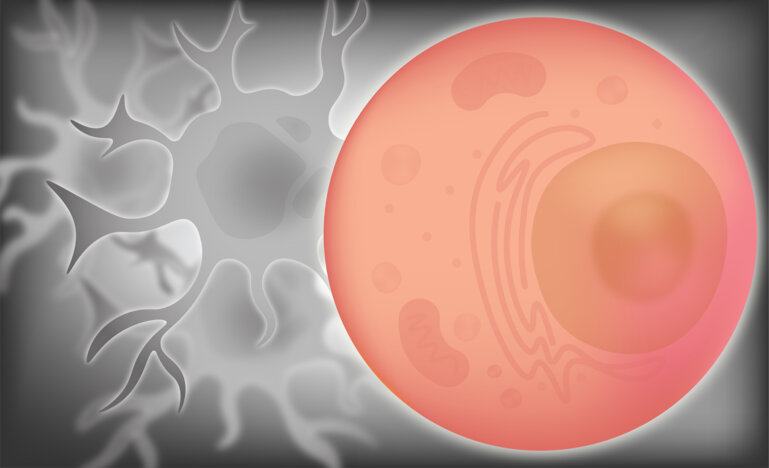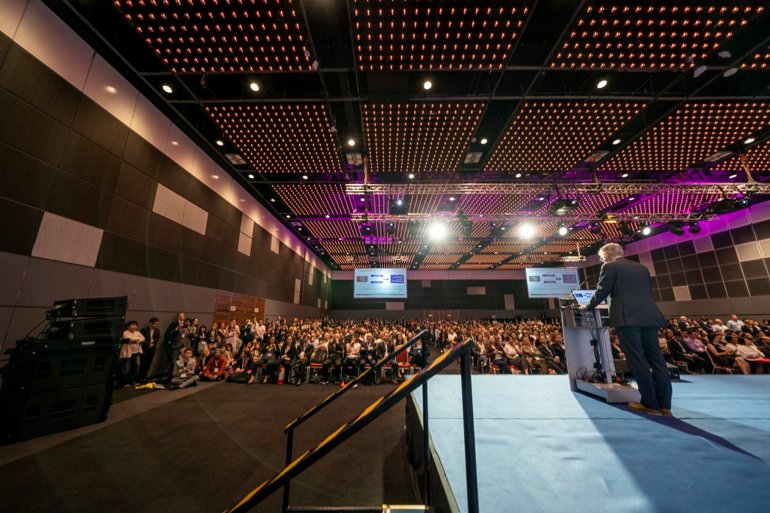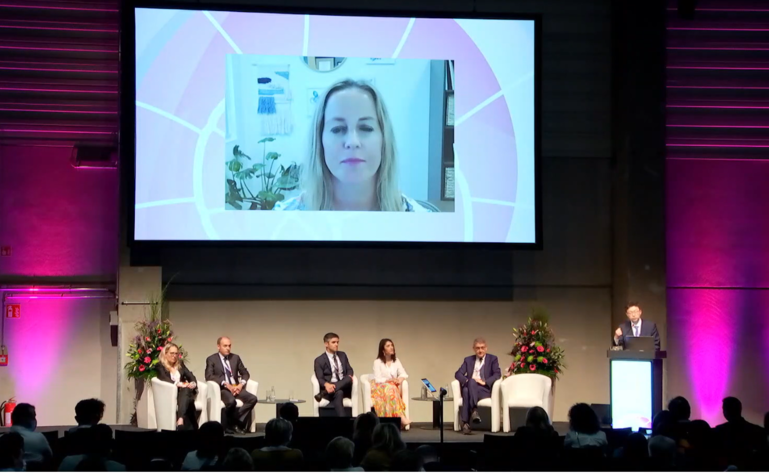The intriguing possibility that altering the microbiome might offer a way of augmenting response to immunotherapy is one of the pioneering new treatment options being explored in oncology.
TAT 2020 Honorary Award recipient Lillian L. Siu, Professor at the University of Toronto and Medical Oncologist at the Princess Margaret Cancer Centre, Toronto, explains the latest progress being made in using ‘bugs as drugs’.
Why investigate the microbiome to augment response to immunotherapy?
Over the last few years, we have seen rapid developments in immuno-oncology medicines but these are not always effective, so we need to look for ways to enhance their efficacy to benefit more patients. Accumulating nonclinical and early clinical evidence suggests that the microbiome, the trillions of bacteria plus their genomes in the human gut, can modulate host immune responses in cancer and alter responses to immunotherapy. (1,2,3,4)
What are the possible mechanisms?
Itis still early days but it seems that the microorganisms in the microbiome influence the immune response. Having more of particular bacterial strains may elicit a favourable immune response, potentially producing more CD8+ T-cells to recognise and kill malignant cells. The study showing transferability of improved responsiveness to immunotherapy in mice suggested an IL-12 dependent mechanism recruiting specific immune cells to the tumour bed4. And immunohistochemical results from a study of three patients with melanoma refractory to anti-PD-1 antibodies who were treated by fecal microbiota transplantation showed increased infiltration of antigen presenting cells (CD68+) in the gut and tumour in addition to increased intratumoral CD8+ T-cells (5).
What approaches to manipulating the microbiome are being investigated?
There are several ways that the microbiome can be altered, including transferring faecal microbiota from immunotherapy responders to non-responders using processed stool material, giving single bacterial strains and rationally designed bacterial consortia given orally in pill form.
For now, research is focused on measuring what happens to the microbiome in terms of engraftment of bacterial species given in an intervention. To do that we sequence study subjects’ stool samples to assess whether they have more of the bacterial strains we are giving them, and how long these strains remain in the gut.
What is your phase I trial investigating?
We are currently testing an oral microbial ecosystem therapeutic, Microbial Ecosystem Therapeutics (MET4), which is a first-in-class consortium of bacterial taxa associated with responsiveness to immune checkpoint inhibitors, in patients with a range of solid tumours. The phase 1 trial includes three cohorts: a safety cohort of five patients already on immune checkpoint inhibitors; patients starting immune checkpoint inhibitors who are randomised 3:1 to MET4 or no MET4; and a third group of patients showing radiological progression but not clinical deterioration on immune checkpoint inhibitors who are being randomised 1:1 to MET4 or not (6). Stool samples are being collected at baseline and 4-5 additional timepoints for next generation sequencing and blood samples are collected for immunoprofiling. The aim is to collect enough biomarker data to demonstrate engraftment and proof of mechanism.
What is in the future?
A fundamental next step is to understand how treatments designed to change the microbiome affect the antitumor immune response. To do that we will need to collect tumour biopsies pre- and post-treatment, in order to understand effects in the tumour microenvironment. Ultimately, randomised studies of immunotherapy with and without microbiome-modulating agents will be needed to determine their incremental benefit to patients. But the early results are promising and I am hopeful that in the next decade comprehensive microbiome-related research will be carried out that will clearly support or refute its effectiveness in oncology. If manipulating the human microbiome can improve response to immunotherapy then this may not only increase the efficacy of immune checkpoint inhibitors upfront but may also reverse resistance in patients who respond initially but whose disease then progresses.
References
- Vetizou M, Pitt JM, Daillere R et al. Anticancer immunotherapy by CTLA-4 blockade relies on the gut microbiota. Science 2015; 350: 1079-1084.
- Sivan A, Corrales L, Hubert N et al. Commensal Bifidobacterium promotes antitumor immunity and facilitates anti-PD-L1 efficacy. Science 2015; 350: 1084-1089.
- Gopalakrishnan V, Spencer CN, Nezi L et al. Gut microbiome modulates response to anti-PD-1 immunotherapy in melanoma patients. Science 2018; 359: 97-103.
- Routy B, Le Chatelier E, Derosa L et al. Gut microbiome influences efficacy of PD-1-based immunotherapy against epithelial tumors. Science 2018; 359: 91-97.
- Baruch EN, Youngster I, Ortenberg R et al. AACR 2019. Abstract CT042. Fecal microbiota transplantation (FMT) and re-induction of anti-PD-1 therapy in refractory metastatic melanoma patients – preliminary results from a phase I clinical trial (NCT03353402).
- ClinicalTrials.gov. Feasibility study of Microbial Ecosystem Therapeutics (MET-4) to evaluate effects of fecal microbiome in patients on immunotherapy. [accessed 25 February 2020].







